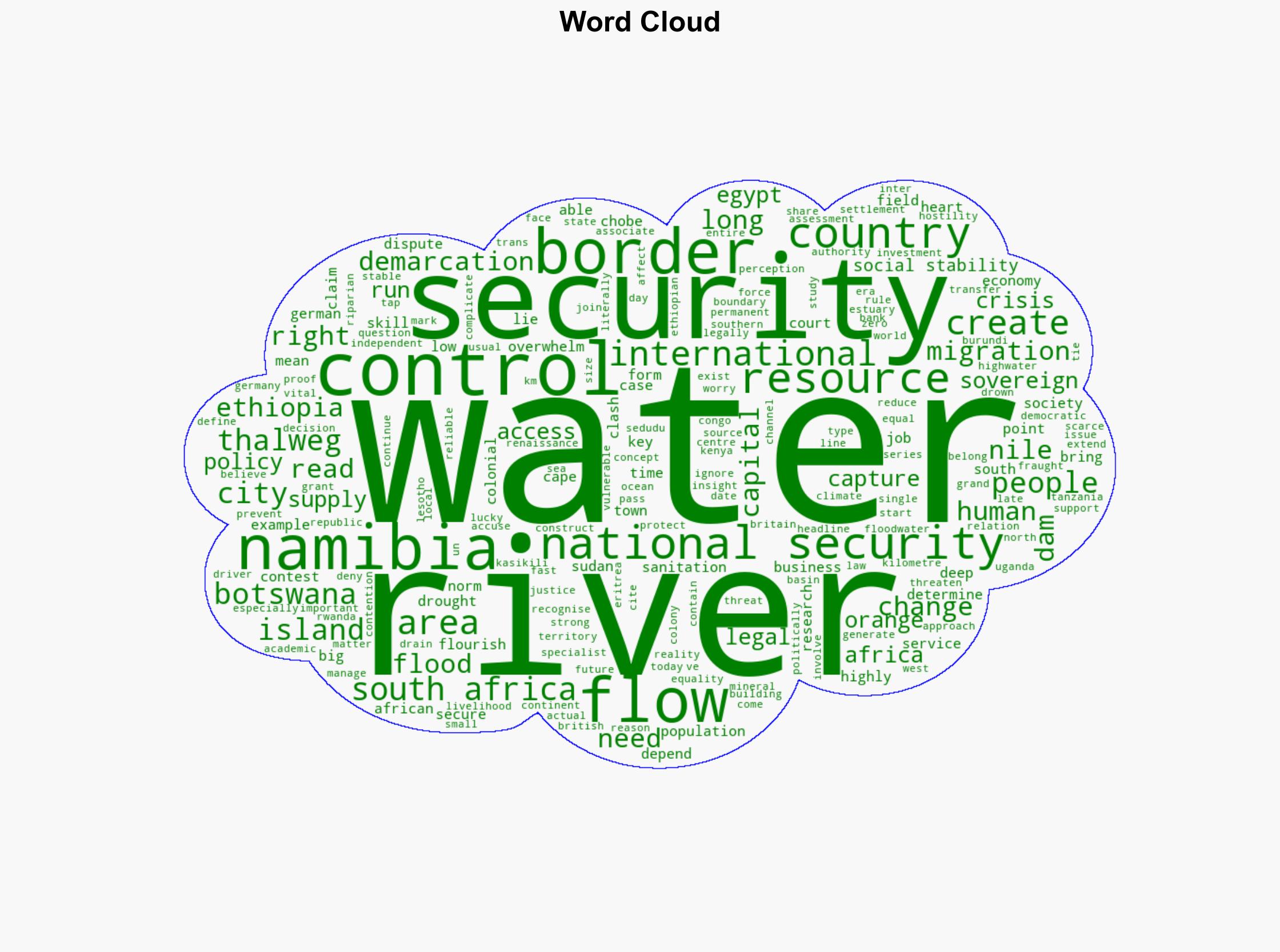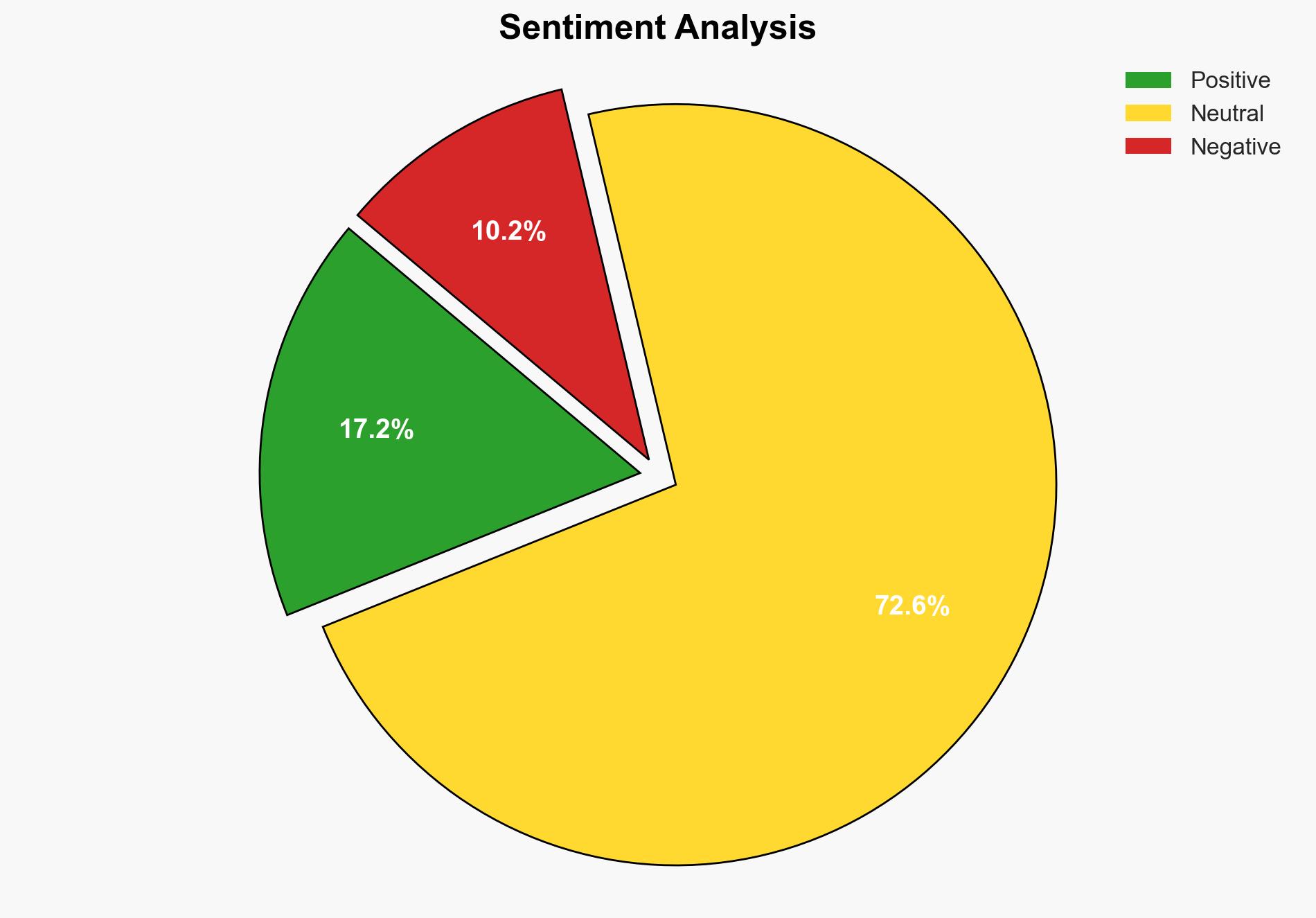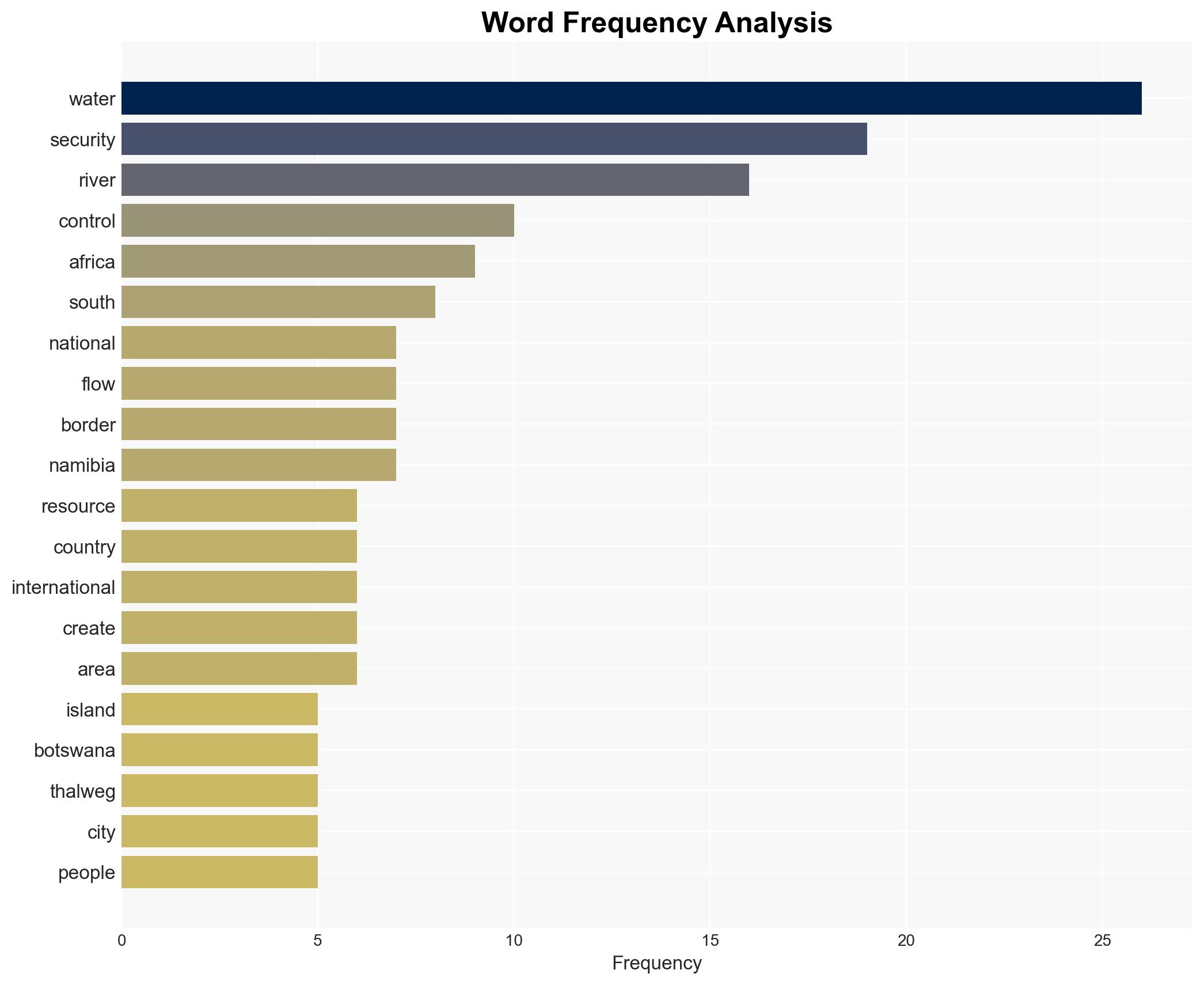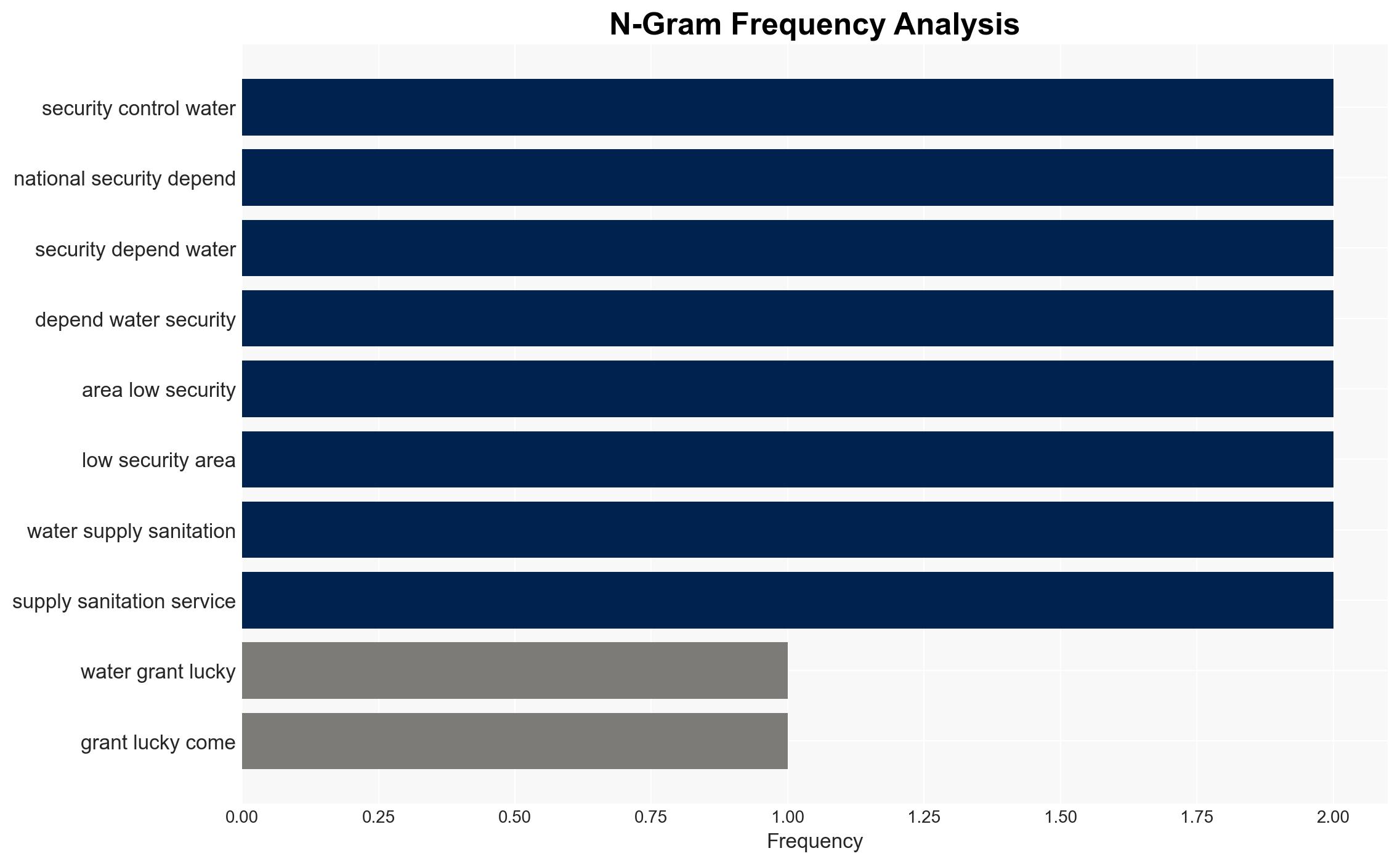How control of water shapes power and security in Africa – The Conversation Africa
Published on: 2025-11-13
AI-powered OSINT brief from verified open sources. Automated NLP signal extraction with human verification. See our Methodology and Why WorldWideWatchers.
Intelligence Report: How control of water shapes power and security in Africa – The Conversation Africa
1. BLUF (Bottom Line Up Front)
Control over water resources in Africa is a critical determinant of national security, economic stability, and geopolitical power. The most supported hypothesis is that water control will increasingly lead to interstate tensions and conflicts, particularly in regions with transboundary rivers. Confidence Level: High. Recommended action includes fostering regional cooperation frameworks and enhancing diplomatic engagements to mitigate potential conflicts.
2. Competing Hypotheses
Hypothesis 1: Control of water resources will lead to increased interstate tensions and conflicts, particularly in regions with transboundary rivers.
Hypothesis 2: Control of water resources will foster regional cooperation and economic integration, as countries recognize mutual benefits and interdependencies.
Hypothesis 1 is more likely due to historical precedents of water-related disputes, such as those involving the Nile and Orange Rivers, and the strategic importance of water for national security and economic stability.
3. Key Assumptions and Red Flags
Assumptions: Water scarcity will continue to worsen due to climate change and population growth. Countries will prioritize national interests over regional cooperation.
Red Flags: Escalation of rhetoric or military posturing by countries with competing water claims, such as Egypt and Ethiopia over the Nile.
Deception Indicators: Public statements by governments that downplay tensions while simultaneously increasing military presence near disputed water resources.
4. Implications and Strategic Risks
Water disputes can lead to cascading threats, including political instability, economic disruptions, and humanitarian crises. Escalation scenarios include military confrontations, cyber-attacks on water infrastructure, and economic sanctions. Informational warfare may also be employed to sway public opinion and international support.
5. Recommendations and Outlook
- Encourage the establishment of regional water management bodies to facilitate dialogue and cooperation.
- Promote investment in water infrastructure and technology to enhance efficiency and sustainability.
- Best Scenario: Successful regional cooperation leads to shared water management and economic growth.
- Worst Scenario: Armed conflict over water resources destabilizes regions and exacerbates humanitarian crises.
- Most-likely Scenario: Continued tensions with periodic diplomatic engagements to manage disputes.
6. Key Individuals and Entities
Entities: African Union, Nile Basin Initiative, International Court of Justice.
7. Thematic Tags
National Security Threats
Structured Analytic Techniques Applied
- Cognitive Bias Stress Test: Expose and correct potential biases in assessments through red-teaming and structured challenge.
- Bayesian Scenario Modeling: Use probabilistic forecasting for conflict trajectories or escalation likelihood.
- Network Influence Mapping: Map relationships between state and non-state actors for impact estimation.
Explore more:
National Security Threats Briefs ·
Daily Summary ·
Methodology





